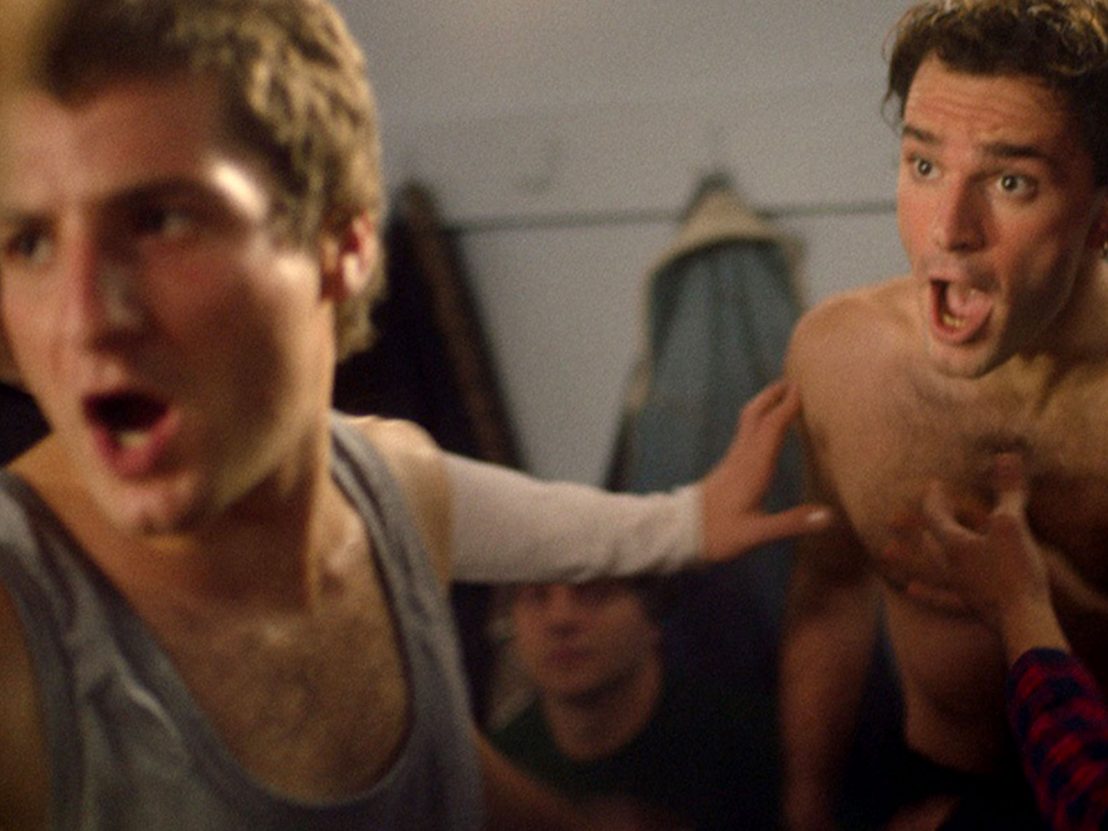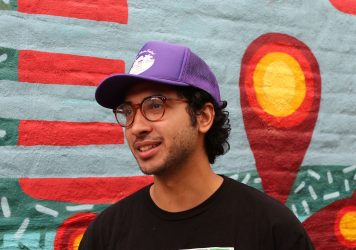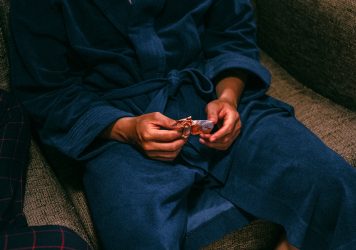
Merab (Levan Gelbakhiani) is forever reprimanded by his dance teacher for his moves. They are just too soft, too fluid. “You need to be like a monument,” he yells. Merab finds it physically straining to adhere to the stern rules of the Adjarian duet, a type of Georgian folk dance. Fearful his graceful movements may betray him, Merab keeps punishing and pushing himself only to have his burgeoning sexuality surface when Irakli (Bachi Valishvili), a newcomer to the troupe, arrives.
Years of dedication and aspirations of joining the national ensemble start to fade away. Merab had expected to suppress his desires for the sake of career and the appeasement of his family – for being gay in Georgia, while legal, is still considered an aberration within this traditional, Orthodox Christian society.
Merab’s struggle is evident in every scene of Levan Akin’s queer coming-of-age story And Then We Danced; a struggle which is also being played out in the country itself. Georgia, a former Eastern Bloc nation largely controlled by the Church, still aspires to join the EU and abide by its human rights, including those extended to the LGBT+ community. It’s the country’s youth which has been pushing hardest for liberalism, using avenues such as the club scene to create safe spaces where activism – whether it be on behalf of women’s rights, LGBT+ rights or the relaxing of drug laws – can thrive.
As in Akin’s film, the club is where Merab eventually finds his own safe space. But now activism is seeping into even Georgia’s most stalwart institutions. And Then We Danced is a double blow for Georgia’s conservative and religious groups, not only for promoting LGBT+ visibility but also queering the hyper-masculine tradition of Georgian folk dance by having Merab and Irakli become romantically involved. There can be no doubting that this is a very big deal in a country where the Church has a 90 per cent approval rating.
The dance in question is seen as a beacon of Georgian values, with its moves originating from ancient military manoeuvres and athletics. It follows a particular and binary formula: the woman’s moves are supposed to capture a natural gracefulness and beauty; the man’s moves convey strength, courage and honour. The women are expected to be virginal and docile while the men perform spectacular acrobatic leaps, turns and spins, signalling to their innate physical ability and macho chivalric pride.
Akin was inspired to write And Then We Danced by the first ever Pride march held in the capital Tbilisi in 2013. Fifty activists assembled for a peaceful rally only to be met by over a thousand anti-LGBT+ counter-protesters, spurred on by the heads of Church. The ensuing violence resulted in 17 people being injured, 12 of whom were hospitalised. The national premiere of And Then We Danced in November 2019 proved equally controversial, drawing over 500 protesters from various religious and right-wing groups who attempted to block the screening. They hurled abuse at the attendees, attempting to shame them as they entered the theatre and, in some instances, physically attacking them. A hesitant police force offered little protection.
On a more positive note, over the three subsequent days of screenings all 6000 tickets sold out within 20 minutes, revealing an appetite for the film, its subject matter and the notion of change.
Leading voices from Georgia’s long-silenced LGBT+ community believe that the film has helped hugely in changing public attitudes. The national and international media attention has put Georgia’s civil rift centre-stage, encouraging dialogue and visibility. Indeed, in interviews, Akin and Gelbakhiani have spoken openly about how the film has galvanised people, giving LGBT+ people a newfound sense of agency and power. It’s worth noting that the film was selected for the Cannes Film Festival before becoming Sweden’s official submission for the Oscars. This is a cultural battle Georgia’s authorities could not afford to ignore.
And yet, it took Akin five attempts to convince Gelbakhiani take on the role of Merab. It cannot be overstated how easy it is to be silenced by fear and the prospect of a public backlash. Creating work that is political, that challenges the status quo, will likely always be met with serious repercussions – and this is doubly difficult for an LGBT+ person operating within a conservative, Orthodox country. Even so, the potential rewards for both filmmaker and society are huge (interestingly, Akin has confessed that he probably wouldn’t have made the film had he not grown up in Sweden).
In the film’s narrative, Irakli and the national dance ensemble eventually become secondary to Merab as he starts coming to terms with his own sexuality. He acts on his desires rather than suppressing them, his dance movements becoming ever more fluid as tradition gives way to self-acceptance. It’s a dance many others in Georgian society look poised to follow.
Published 7 Mar 2020

Sam Abbas hopes his debut feature The Wedding will usher in a new era of queer cinema in the region.

By Jake Hall
The success of recent crowd-funded projects such as Roommate points to a growing awareness of LGBTQ+ issues.

By Chloe Smith
Is Donald Glover’s Lando Calrissian the latest attempt to deny LGBT audiences tangible representation?